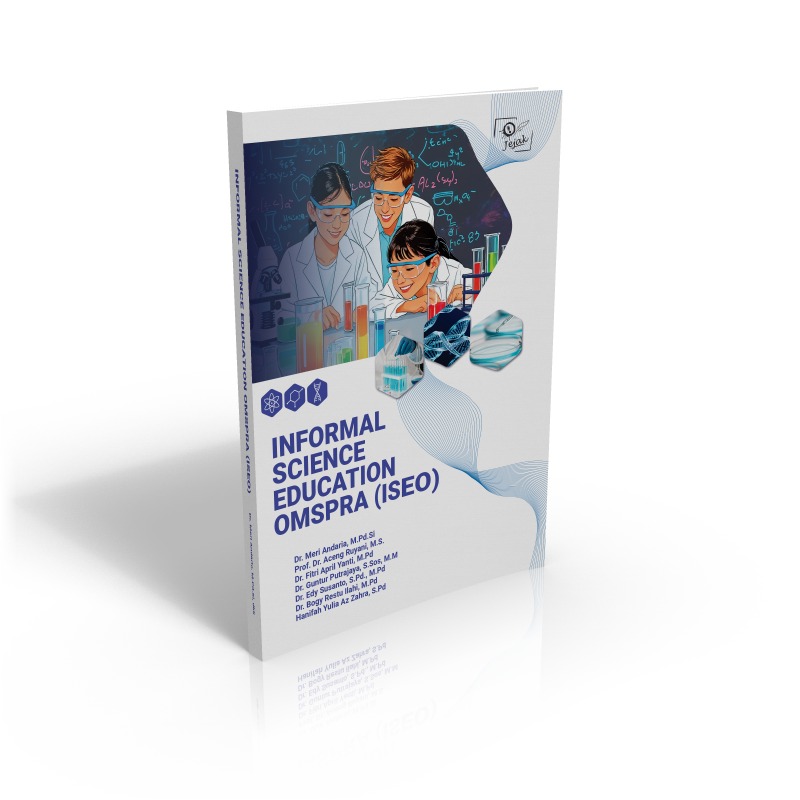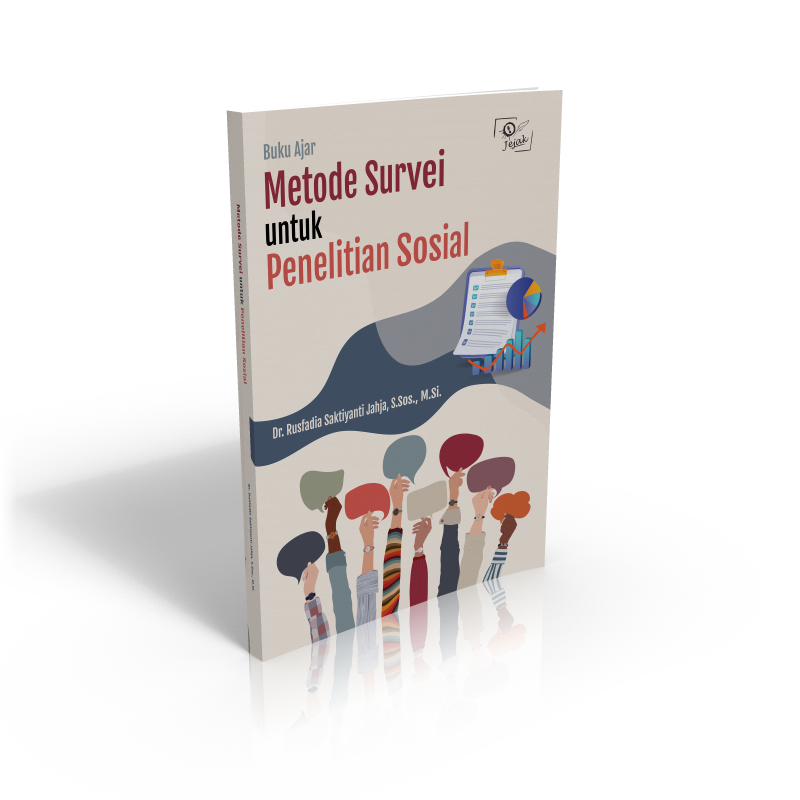Informal Science Education Omspra (ISEO)
Rp.85.000
| Kategori Buku | : Non Fiksi |
| Penulis | : Dr. Meri Andaria, M.Pd.Si., Prof. Dr. Aceng Ruyani, M.S., Dr. Fitri April Yanti, M.Pd., Dr. Guntur Putrajaya, S.Sos, M.M., Dr. Edy Susanto, S.Pd., M.Pd., Dr. Bogy Restu Ilahi, S.Pd., M.Pd., Hanifah Yulia Az Zahra, S.Pd. |
| Jumlah Halaman | : iv + 110 halaman |
| Dimensi | : 15,5 x 23 cm |
| ISBN | : 978-634-229-196-2 |
| E-ISBN | : 978-634-229-197-9 |
| Tahun Terbit | : 2025 |
| Editor | : Dr. Edy Susanto, S.Pd., M.Pd. |
| Desain & Penata Letak | : Meditation Art |
Sinopsis :
The Informal Science Education OMSPRA (ISEO) book is a comprehensive guide that discusses approaches and strategies in learning science outside of formal settings, such as schools or conventional classrooms. This book is designed to provide relevant insights, theories, and practices in support of innovative, interactive, and real-life experience-based science education.
Chapter I introduces the concept of Informal Science Education, emphasizing the importance of flexible and contextual science learning. Chapter II discusses the basics of science learning, including its distinctive principles and characteristics. Chapter III introduces Project-Based Learning (PBL) as an active learning approach that encourages students to build knowledge through real projects.
Furthermore, Chapter IV discusses effective learning media in supporting informal learning, while Chapter V highlights the use of worksheets as a systematic tool. Chapter VI deepens the skills of the scientific process, namely the ability to think and act scientifically that students must have.
Chapter VII presents a range of relevant references in the development of ISE, providing a solid literary foundation. Chapter VIII discusses the use of the 4-D method (Define, Design, Develop, Disseminate) in designing learning tools. Finally, Chapter IX closes with the Research and Development (R&D) method used in the development of research-based learning products or models.
This book is very useful for teachers, educators, educational researchers, as well as anyone interested in the development of more dynamic and contextual science learning through informal channels.
Keyword : Informal, Science, Education, Omspra, (ISEO), jejakpublisher, jejak publisher, jejak, publisher, Informal Science Education Omspra (ISEO), Informal Science Education Omspra (ISEO) jejak publisher, Informal Science Education Omspra (ISEO) jejakpublisher




